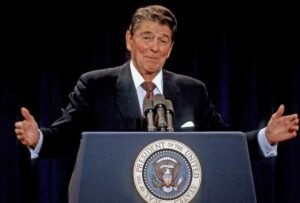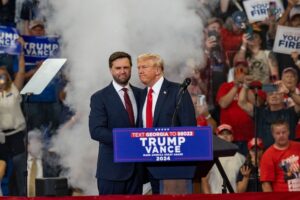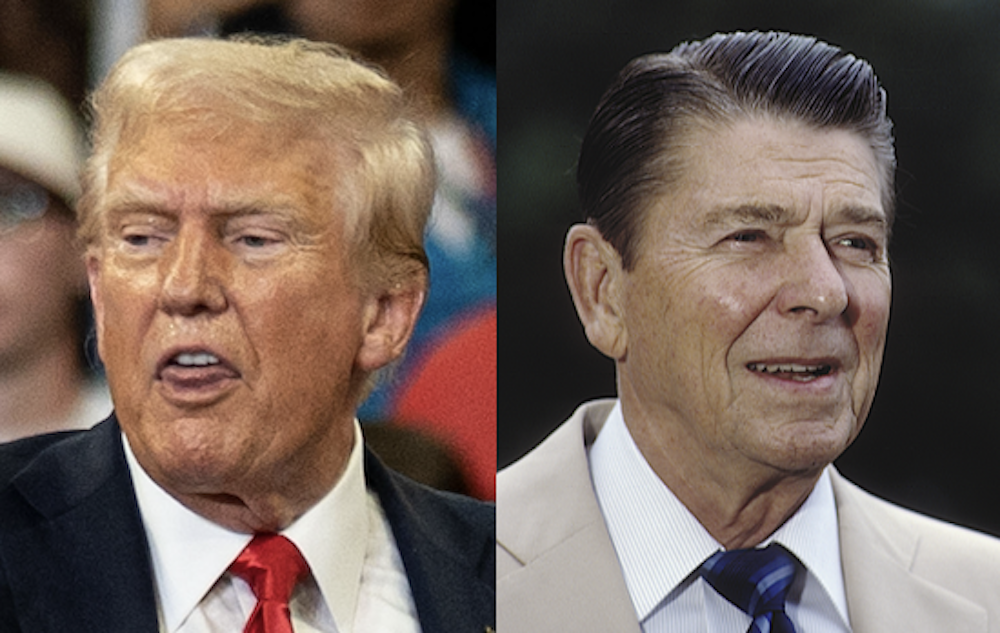Donald Trump has cemented his legacy as one of the most admired modern U.S. presidents, according to a new poll by The Economist. The survey places Trump alongside Ronald Reagan and Barack Obama as the top three leaders of the modern era, with Joe Biden ranking near the bottom.
In the poll, 45% of respondents rated Trump’s presidency as “outstanding” or “above average,” trailing closely behind Obama (49%) and Reagan (54%). Joe Biden, on the other hand, earned a dismal 26% rating, placing him as the third-worst modern president in the eyes of the public.
Reagan’s legacy as a transformative conservative icon continues to resonate, with over half of respondents viewing his presidency positively. Known for his economic policies and Cold War victories, Reagan remains the gold standard for Republican leadership.
JUST IN: Ronald Reagan, Barack Obama and Donald Trump viewed as top 3 modern American presidents, Biden the 3rd worst
Legacy is outstanding or above average:
Reagan: 54%
Obama: 49%
Trump: 45%
—-
Biden: 26%
Source: The Economist poll pic.twitter.com/3aSnloHfou
— Eric Daugherty (@EricLDaugh) January 2, 2025
Despite fierce opposition from Democrats and mainstream media, Trump’s ability to connect with voters has only solidified his status as a major figure in American politics as well. Reagan and Trump share notable parallels, particularly in their outsider status and ability to resonate with a populist base. Reagan, a Hollywood actor turned California governor, was initially dismissed by political elites but built a broad coalition by appealing directly to everyday Americans. Similarly, Trump, a real estate mogul and reality TV star with no prior political experience, positioned himself as an outsider challenging the establishment.

CHICAGO, ILLINOIS, USA – AUGUST 12, 1986
Both leaders excelled in communication, though their styles differed. Reagan, dubbed “The Great Communicator,” used optimistic and polished rhetoric to champion traditional values and national pride. Trump, on the other hand, employed a more combative and unfiltered approach, often using social media to connect with his base and bypass traditional media. Despite stylistic differences, both leaders galvanized movements that redefined the Republican Party and shaped conservative politics for their respective eras.
Trump’s economic policies, often dubbed “Maganomics,” focuses on protectionism, including ramping up tariffs and tightening immigration controls. In the energy sector, U.S. oil leaders expect Trump’s administration to streamline approvals for drilling on federal properties, which could enhance oil and gas output. Trump’s approach to foreign policy, particularly in Latin America, involves assertive, often unilateral measures, a shift from past U.S. strategies that emphasized collective diplomacy.

Former president of the USA Donald Trump – VP nominee, J.D. Vance rally, Atlanta, GA, August 3, 2024. Photo by Phil Mistry
Trump has reiterated his call for the return of the Panama Canal to U.S. control, criticizing Panama for high fees charged to U.S. ships using the canal. He has also expressed his concerns about the canal potentially falling into “wrong hands,” which he has suggested could include Chinese influence. Trump has described the current arrangement as a “complete rip-off” and has issued warnings that if Panama doesn’t lower the fees, he might push for the U.S. to retake control of the canal.
Contributing to the decline are persistent economic concerns, including inflation and rising costs of living, and heightened scrutiny over Biden’s age and mental fitness. His decisions have also sparked political backlash, particularly his unwavering support for Israel during the 2023 Israel–Hamas conflict.
(VOTE: Should ’60 Minutes’ Be Investigated For Deceptively Editing Kamala Interview?)

